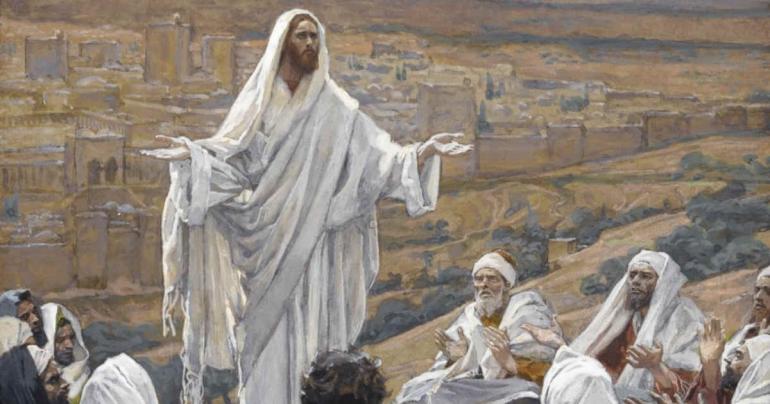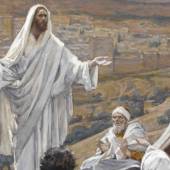The Lord’s Prayer

“This is how you are to pray: Our Father who art in heaven…” - Matthew 6:9
The following is an excerpt from the My Catholic Worship! book, Chapter Eleven, on the Lord’s Prayer:
The Lord’s Prayer is indeed a summary of the entire Gospel. It is called “The Lord’s Prayer” in that Jesus Himself gave it to us as a way of teaching us to pray. In this prayer, we find seven petitions to God. Within those seven petitions we will find every human longing and every expression of faith found within the Scriptures. Everything we need to know about life and prayer is contained in the wonderful prayer.
Jesus Himself gave us this prayer as the model of all prayer. It is good that we repeat the words of the Lord’s Prayer regularly in vocal prayer. This is also done in the various sacraments and liturgical worship. However, saying this prayer is not enough. The goal is to internalize each and every aspect of this prayer so that it becomes a model of our personal petition to God and an entrustment of our entire life to Him.
The Foundation of Prayer
The Lord’s Prayer begins not with a petition; rather, it begins with us acknowledging our identity as children of the Father. This is a key foundation for the Lord’s Prayer to be prayed properly. It also reveals the foundational approach we must take in all prayer and in the entire Christian life. The opening statement preceding the seven petitions is as follows: “Our Father who art in Heaven.” Let’s take a look at what is contained in this opening statement of the Lord’s Prayer.
Filial Boldness: At Mass, the priest invites the people to pray the Lord’s Prayer by saying, “At the Savior’s command and formed by divine teaching we dare to say…” This “daring” on our part comes from the foundational understanding that God is our Father. Each Christian is to see the Father as my Father. We must see ourselves as God’s children and approach Him with the confidence of a child. A child with a loving parent is not afraid of that parent. Rather, children have the greatest trust that their parents love them no matter what. Even when they sin, children know they are still loved. This must be our fundamental starting point for all prayer. We must start with an understanding that God loves us no matter what. With this understanding of God we will have all the confidence we need to call on Him.
Abba: Calling God “Father” or, more specifically, “Abba” means we cry out to God in the most personal and intimate of ways. “Abba” is a term of endearment for the Father. This shows that God is not just the Almighty or the All-Powerful. God is so much more. God is my loving Father and I am the Father’s beloved son or daughter.
“Our” Father: To call God “our” Father expresses an entirely new relationship as a result of the New Covenant that was established in the blood of Christ Jesus. This new relationship is one in which we are now God’s people and He is our God. It’s an exchange of persons and, therefore, deeply personal. This new relationship is nothing other than a gift from God to which we have no right. We have no right to be able to call God our Father. It’s a grace and a gift.
This grace also reveals our profound unity to Jesus as the Son of God. We can only call God “Father” in so far as we are one with Jesus. His humanity unites us to Him and we now share in a deep bond with Him.
Calling God “our” Father also reveals the union we share with one another. All who call God their Father in this intimate way are brothers and sisters in Christ. We, therefore, are not only deeply connected together; we also are enabled to worship God together. In this case, individualism is left behind in exchange for fraternal unity. We are members of this one divine family as a glorious gift of God.
Our Father who art in heaven, hallowed be thy name. Thy kingdom come. Thy will be done on earth, as it is in heaven. Give us this day our daily bread, and forgive us our trespasses, as we forgive those who trespass against us, and lead us not into temptation, but deliver us from evil. Jesus, I trust in You.
Radio Veritas Asia (RVA), a media platform of the Catholic Church, aims to share Christ. RVA started in 1969 as a continental Catholic radio station to serve Asian countries in their respective local language, thus earning the tag “the Voice of Asian Christianity.” Responding to the emerging context, RVA embraced media platforms to connect with the global Asian audience via its 21 language websites and various social media platforms.
















- Reply
Permalink